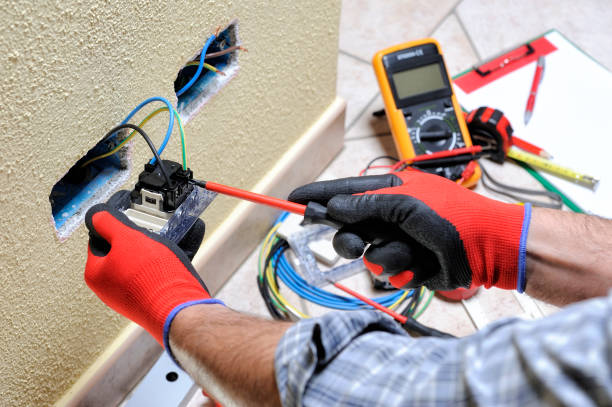Electricity as they say is a good servant but a bad master. It is difficult to imagine how we would survive without electricity in our homes. Almost everything we do from lighting to cooking to powering our devices is dependent on electricity.
As much as electricity serves as well, it can also become our worst enemy if not handled properly. Sometimes we get used to it to an extent that we even forget to carry out the necessary repairs and maintenance to keep our homes safe.
No wonder hundreds of deaths occur and property worth millions of dollars damaged every year as a result of residential electrical fires. This Electric Home knows this very well, that is why they provided us a list of home solutions that have top quality to keep ourselves safe.
Another thing is to ensure that we conduct thorough and regular maintenance in our homes. By doing so, you will be able to pick out any issues with your electrical system and rectify them before they cause a disaster.
Here is a checklist for electrical repair and maintenance:
Outdoor inspection
You should always start your inspection from outside as you move inside your house. There are two things that you can basically do when it comes to outside inspection:
- In case your home is connected with electricity through overhead wires, hire a qualified electrician to trim or cut trees around the electrical lines
• Don’t allow trees to overgrow close to wires or cable services
Check breaker panels
- Open the lid carefully and check the interior part of the pane. Try to examine if there are parts that are scorched or banned and loose wires. Do not touch with your bare hands anything that appears unsafe. In case you suspect that something is not adding up, the best thing is to contact a professional
• See if you can install arc-fault circuit interrupters (AFCIs). This is a system that helps in preventing fire by monitoring electrical current within the circuit. If unexpected arcing occurs, then the AFCI puts off the offending circuit.
Indoor inspection
After conducting a thorough inspection outside your home, you should then focus your attention inside the house. Here are some of the things you should do:
Inspect outlets and switches
In case an outlet is discolored, has a warm touch, or producing crackling sounds, it means there is a problem somewhere. You should call an electrician as soon as possible to inspect and identify where the problem is.
Test outlets
Purchase a receptacle tester from a local electrical shop and use it to test outlets. You can ask your electrician if you are not sure how to use the tester. If the outlet is not working, it could be a sign of loose wiring or a much bigger problem.
Test GFCI outlets
Insert a receptacle lamp or tester and press the “test button” The lamp is supposed to go off. The GFCI will turn back on if it is functioning well after you press the “reset” button.
Check electrical cords
- Try to look for cracked, damaged, or loose cords and have them replaced as quickly as possible
• Avoid running cords underneath the carpet or across doorways. It is better to contact a professional to come and assist you in installing extra outlets.
• Ensure that there are no naked wires hanging around the house at any given time irrespective of whether the outlet has the power or not
• You should also make sure that all cords and plugs are a distance away from any source of heat like a space heater or radiators. Avoid putting furniture or anything with substantial weight on top of cords
• When you are outside, ensure that you only use cords or items labeled for outdoor use
Check your light bulbs
It is important to ensure that all bulbs being used in your house do not exceed the recommended maximum wattage. Sometimes it is easy to assume and start using bulbs that are below or above the required wattage.
This act may appear simple but can cause electrical issues in your house.
Secondly, ensure that all bulbs have globes or shades for safety reasons. Materials such as clothing put too close to bulbs may cause a fire outbreak.
Inspect circuit breakers
You should also hire a qualified and experienced electrician to come and inspect breakers that keep tripping in your house.
All circuits in your house must be properly grounded. A circuit comprises wires that transmit electrical current to appliances and lights. This means there should be a ground wire within your home.
Bottom line
Electricity plays a big role in our homes. However, it can also become very dangerous if not handled properly. You need to conduct routine electrical maintenance to ensure that your home is safe. Always involve a qualified professional for issues that are beyond your knowledge.

